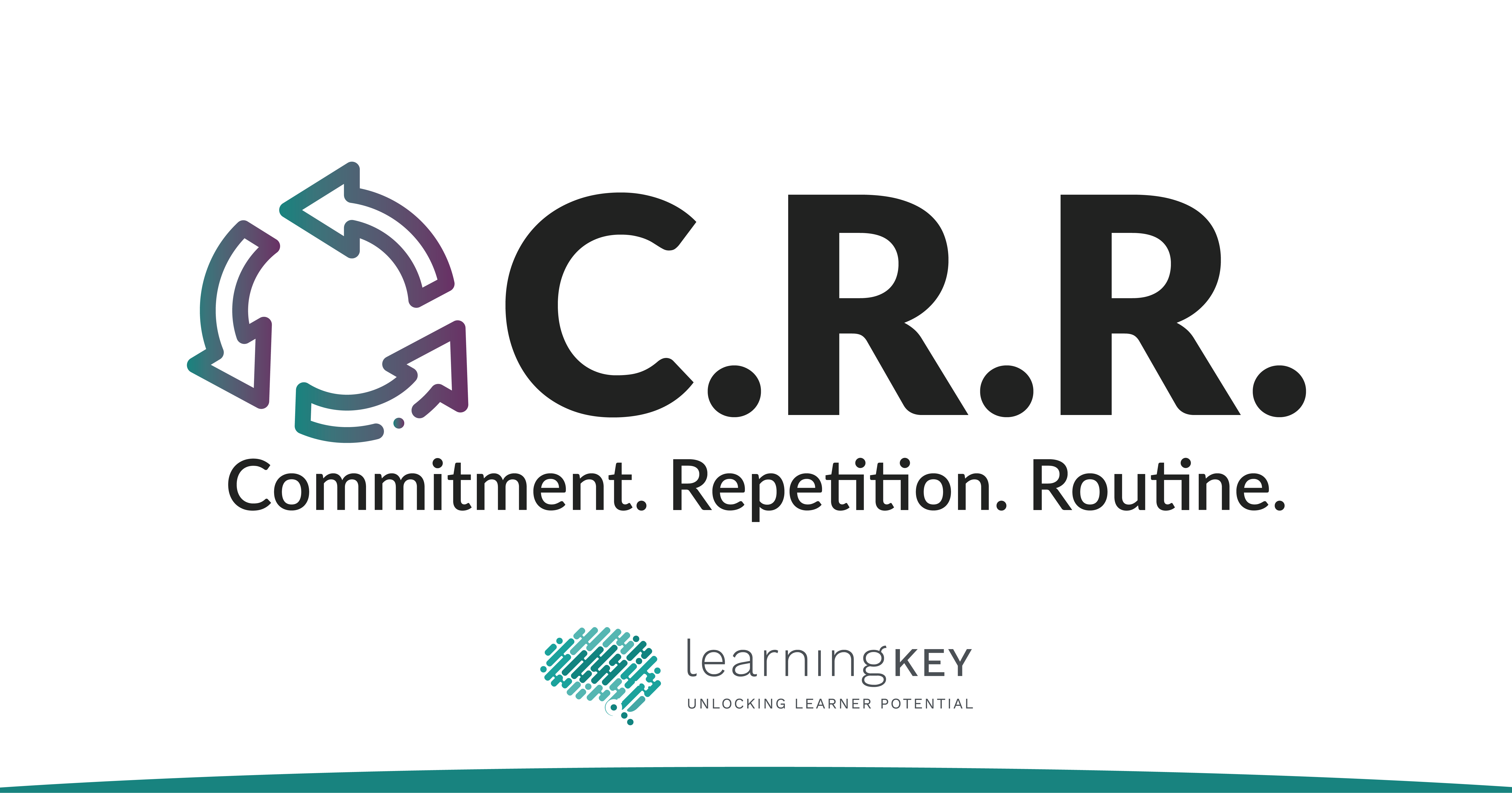How Commitment, Repetition and Routines Change Outcomes
“Most people know what to do, but they don’t do what they know.” -Tony Robbins
Last month we explored the concept of it not being about “the more you know” but rather about “the more you do.” You see, information and implementation are two entirely different things. Someone can possess knowledge of something and never apply it (case in point: we all know we should exercise, but do we actually do it?). Or, someone may start inspired but then lose momentum. Our clients or learners may also learn the information, but not fully implement it.
And it’s absolutely true, it’s easy to begin implementation and transformation work when you feel inspired and there is energy and momentum. When the excitement wears off, however, it’s easy to fall off track and stop implementing what we know is best.

How do we commit to doing then? CRR shows us the three things that are involved in successful implementation:
Commitment: When people are committed to a task, they see the personal relevance. They understand why something matters and therefore they become committed to the task. From a neuroscience perspective, this taps into the Affective Network (the emotional headquarters of the brain) where people become emotionally connected to whatever change they are trying to achieve. The emotional connection to the transformation work is critical for long-term sustainability and success. Schools, businesses, and organizations who know why they are making the changes they are making are far more likely to be successful in their implementation and transformation work.
Ask yourself: Do my learners know why what they are learning is important or how it makes a difference for them in the long term? If not, how can I share that with them today?
Repetition: Learning new information forges new synaptic connections in the brain while repeating that information strengthens the neuronal connections that are already there. If we want our school, business or organization to transform, then being diligent about consuming the information in different ways — such as through videos, podcasts, or by reading — helps us reinforce what we already know. The repetition of information helps us master the ideas until they eventually become a part of who we are. The repetition of information helps us recognize information, which taps into the Recognition Network of the brain (the part of the brain that is responsible for how people perceive information and their environment).
Ask yourself: Do I circle back to what I want my learners to know often? How often? Do I present that information in different ways?
Routine: Establishing predictable routines helps us to stay on course. When we get into the habit of doing something consistently, that habit carries us to the goal we are trying to achieve in the first place. Habit stacking is a useful tool that allows us to pair old habits with new habits. For example, if you want to take vitamins everyday (but you keep forgetting), you would pair that new habit with something you already do, such as brushing your teeth. When you set your vitamins next to your toothbrush, it’s easier for you to remember to take your vitamins when you brush your teeth. In other words, you develop a new habit by pairing it with another habit. This intentional strategy development activates the Strategic Network in the brain, which supports our ability to plan and work towards goals.
Ask yourself: Do I embed specific routines in my instruction that encourage learners to develop new habits? Or, do I expect learners to learn the information and master how to apply it on their own? Where can I embed specific prompts and cues to encourage new habits that promote long-term success?
In the end, it ultimately isn’t about the more you know; it’s really about the more you do. The CRR method helps us get to more doing with what we already know.

Learning Key is committed to providing a website that is accessible to the widest possible audience, regardless of technology or ability. We are actively working to increase the accessibility and usability of our website. In the meantime should you experience any difficulty in accessing the Learning Key website or tools, please don’t hesitate to contact us at support@learningkeyworks.com.